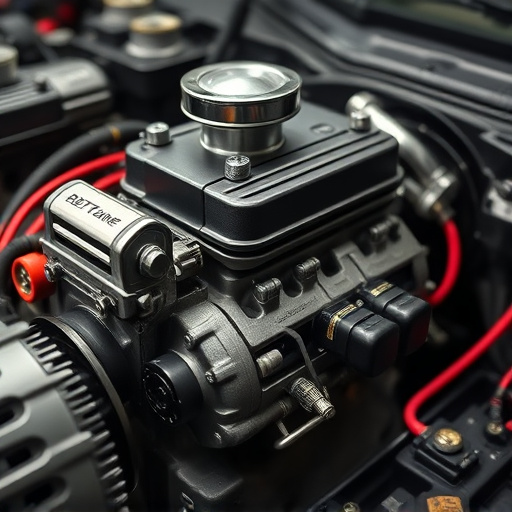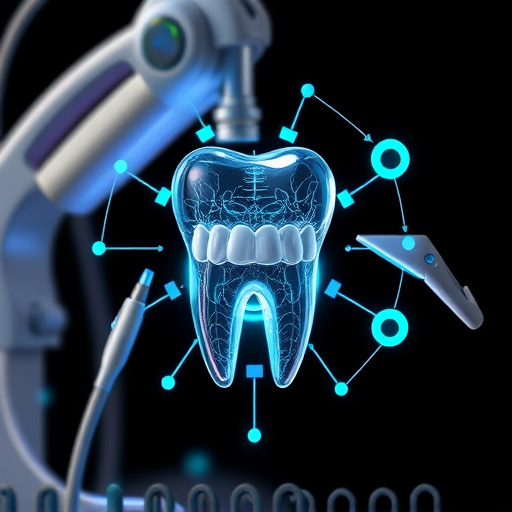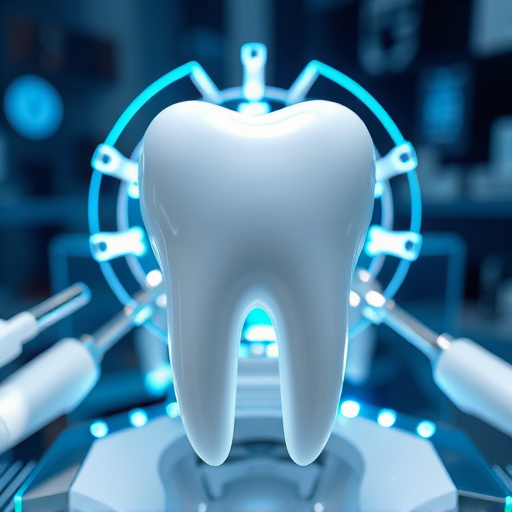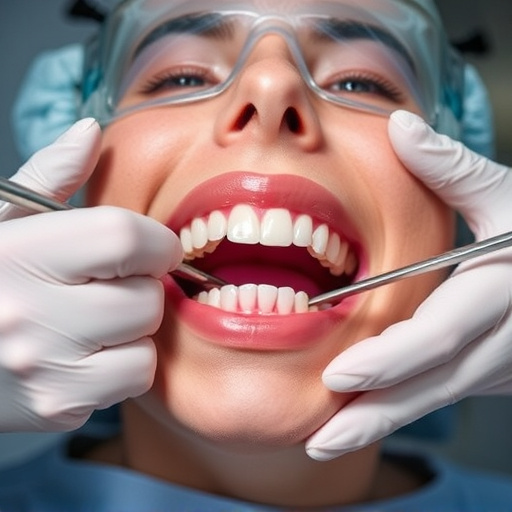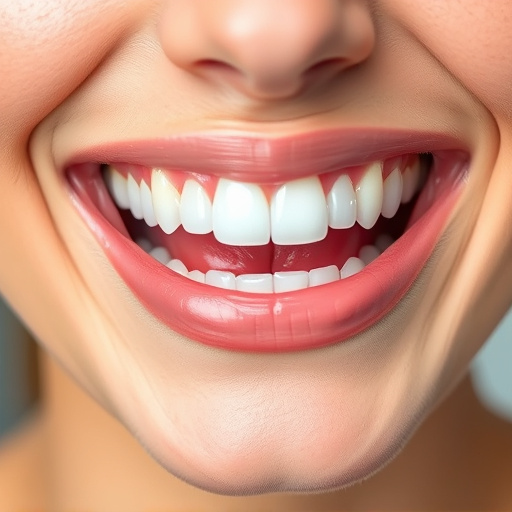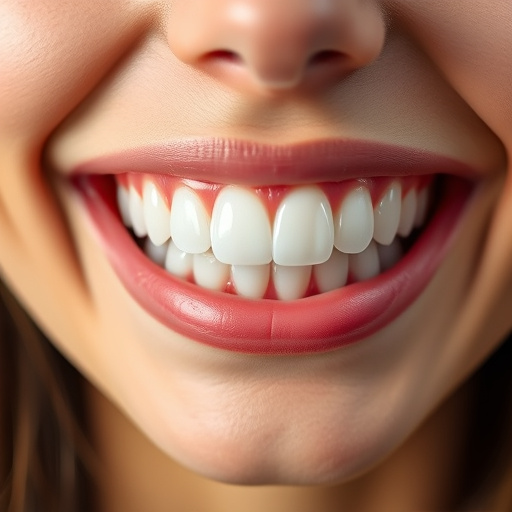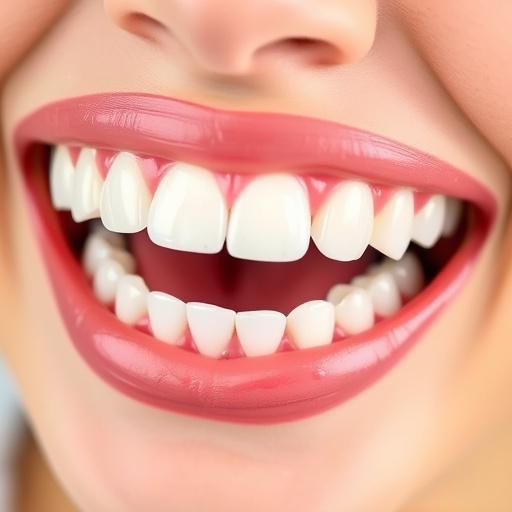Chronic tooth grinding (bruxism) causes oral health issues like jaw pain, headaches, and damaged teeth. Symptoms include persistent headaches and sore jaw muscles. Using a night guard for grinding protects teeth, alleviates discomfort, and prevents further damage, saving money on dental repairs. Regular dental check-ups monitor health, while emergency care addresses damaged teeth.
Are you experiencing persistent fatigue, jaw pain, or chipped teeth? These could be signs of bruxism, a common sleep disorder known as tooth grinding. A night guard is an effective solution for managing this condition. This article explores the telltale symptoms, highlights the numerous advantages of using a night guard, and guides you on when to consult a dentist for one. Read on to learn if a night guard for grinding could be your answer.
- Recognizing Common Grinding Symptoms
- Benefits of Using a Night Guard
- When to Consult a Dentist for a Guard
Recognizing Common Grinding Symptoms
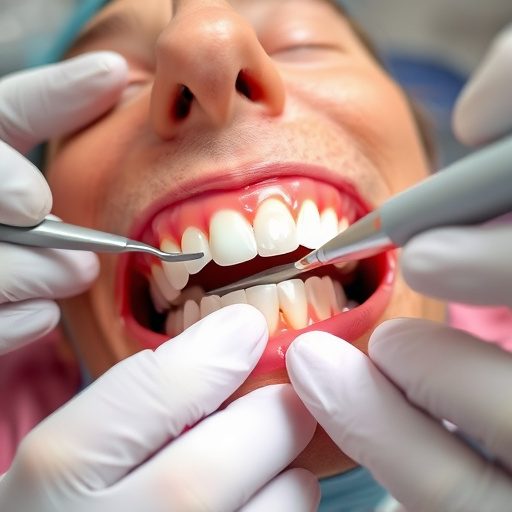
Grinding your teeth—a habit known as bruxism—can lead to significant oral health issues if left untreated. Recognizing the common symptoms is the first step towards finding a solution, and that’s where a night guard for grinding comes in. One of the primary signs is chronic jaw pain or headaches, often felt upon waking. This discomfort can be a result of teeth grinding against each other, leading to increased pressure on your jaws and associated muscles.
Additionally, frequent teeth cleaning appointments may become necessary to counteract enamel wear caused by grinding. Even wisdom tooth removal might be considered if impacted or causing strain due to grinding. Other telltale signs include chipped or broken teeth, a dull or sore feeling in the teeth, and noticeable dental bonding damage. These symptoms highlight the importance of addressing the issue promptly with solutions like wearing a night guard while sleeping.
Benefits of Using a Night Guard
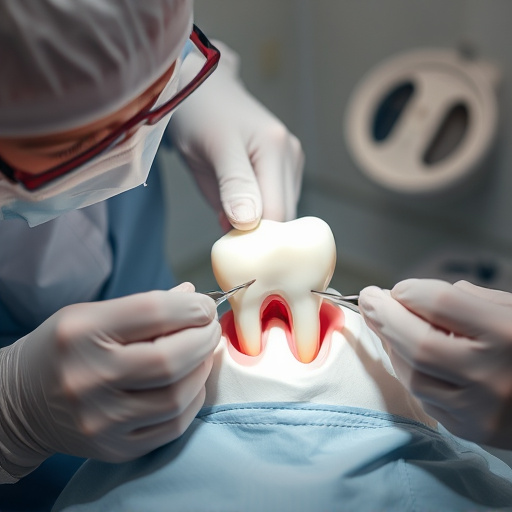
Using a night guard for grinding teeth can bring about significant benefits, especially if you’re experiencing chronic bruxism (tooth grinding). These customized mouthguards act as a physical barrier between your upper and lower teeth, preventing them from wearing down against each other during sleep. This simple yet effective solution plays a crucial role in preventive dentistry, safeguarding your oral health and saving you the cost of extensive dental work later on.
Moreover, night guards can alleviate discomfort associated with bruxism, such as jaw pain, headaches, and chipped or cracked teeth. They also help maintain the alignment of dental crowns and prevent the need for frequent replacements due to damage caused by grinding. Additionally, dental bonding, a common procedure for repairing damaged teeth, becomes less necessary when you regularly use a night guard, promoting better overall oral health and saving you both time and money in the long run.
When to Consult a Dentist for a Guard
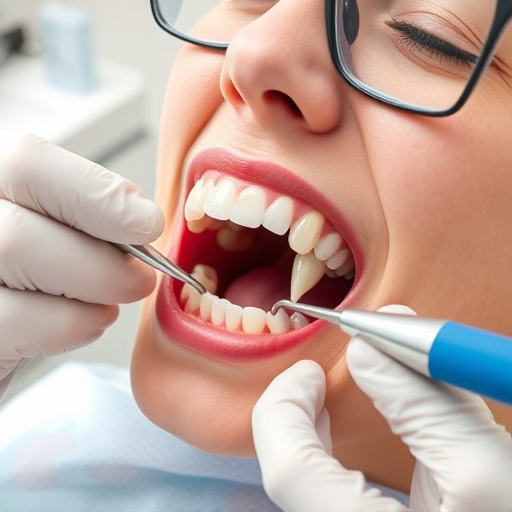
If you’re experiencing chronic tooth grinding (bruxism), it’s time to consult a dentist about a night guard for grinding. While some people grind their teeth occasionally without lasting effects, frequent or intense grinding can lead to significant dental issues. Signs that indicate a need for a night guard include persistent headaches, sore jaw muscles, and increased sensitivity in your teeth. During sleep, your teeth are more vulnerable to damage from grinding, which can result in tooth wear, chipping, or even tooth repair difficulties. Regular dental cleanings and check-ups are crucial in monitoring the health of your teeth and gums, especially when dealing with bruxism.
In cases where grinding has already caused noticeable damage, an emergency dental care visit might be necessary before considering a night guard. Your dentist can assess the extent of the problem and provide appropriate treatment options, which may include fillings, crowns, or other restorative procedures to protect and repair your teeth. A night guard for grinding acts as a protective barrier between your top and bottom teeth during sleep, minimizing wear and preventing further damage, especially if you’re prone to intense or frequent tooth grinding.
If you’re experiencing chronic jaw pain, headaches, or noticeable tooth wear, it could be indicative of bruxism. In such cases, investing in a custom-fitted night guard for grinding can significantly improve your sleep quality and overall oral health. Don’t delay; consult your dentist about a night guard for grinding to prevent further damage and regain a peaceful night’s rest.



